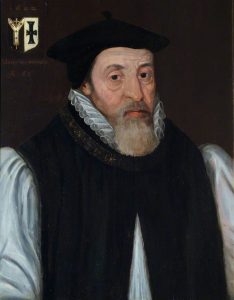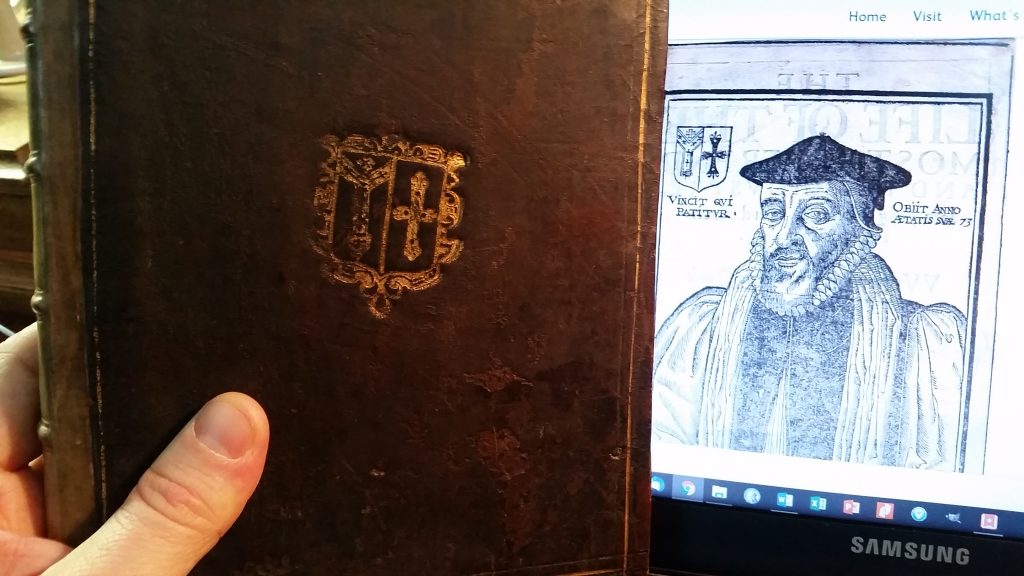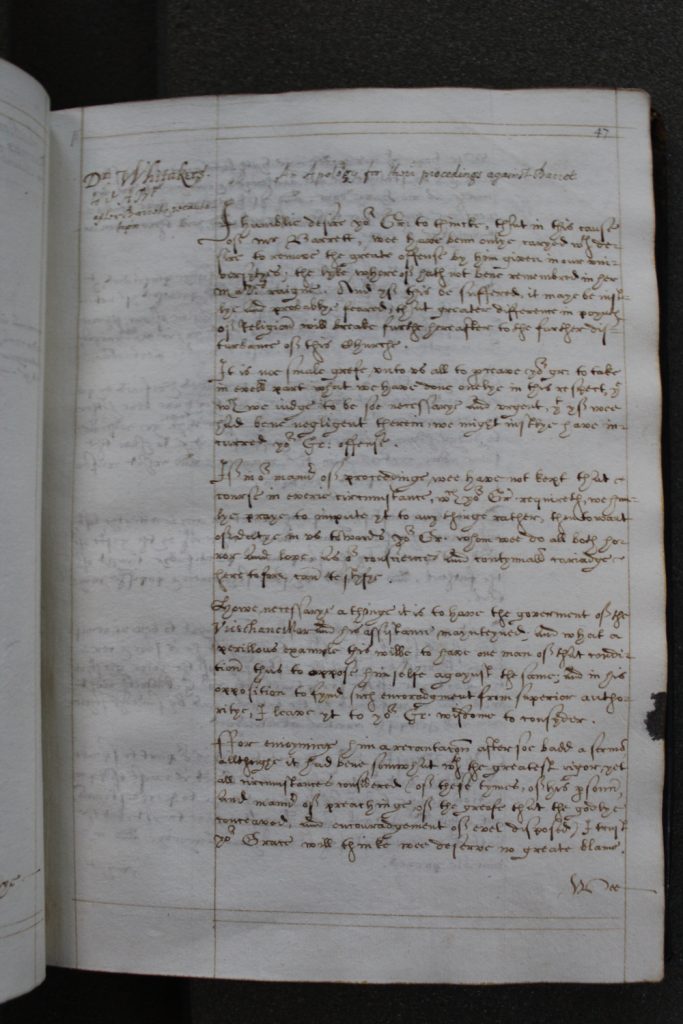In August I will be giving a paper at a Symposium on Reformation Anglicanism. The conference brings together Christian academic researchers on the English Reformation. It is a great privilege for me, as an academic-in-training, to have the opportunity to present some of my own research among established scholars, and to benefit from their knowledge and experience.
Why is it worthwhile for Christians to study church history at an academic level? For lots of reasons. One of the big reasons is because the stories we tell about the past shape the way we see the present.
Anglicanism is often misrepresented today. Is it a ‘middle way’ between Roman Catholicism and Protestantism? Is it a broad, inclusive religion with a commitment to prayer and few shared beliefs? Is it’s heritage best represented by Latin-liturgies, choral singing, and cathedrals? All these options, and more, are based on various understandings of English church history, and especially what its practices, values, and doctrines were during its formative years in the 16th century. What is the real Anglicanism? Which story is true?
Inevitably the answer is complicated. The history of any long-standing entity like a national church will be complicated. However, there is a scholarly consensus today that the Church of England was founded on Reformed and Evangelical convictions, with the gospel at its heart. It’s liturgy (the Book of Common Prayer, 1559) and its doctrinal statement (the Thirty-Nine Articles, 1571) teach the biblical gospel of salvation through faith alone in Christ alone.
Christian historians have an important role to play in demonstrating that this is the case. In our day ‘Anglicanism’ is being redefined in order to justify immoral lifestyle choices, and to replace the gospel with vague spiritualities that have little to do with faith in Jesus. That makes it all the more important to demonstrate that, at its core, true Anglicanism is a form of vibrant, Bible-believing Christianity. Any other view of Anglicanism is subversive and anti-Anglican. Sadly there is a lot of ‘anti-Anglican Anglicanism’ in the world today!
My paper will be on John Whitgift, the last Archbishop of Canterbury during Elizabeth I’s reign. He was Archbishop from 1583 to 1604, surviving less than a year into King James I’s reign. Investigating Whitgift is useful background to my PhD work on William Perkins; Whitgift was Archbishop for Perkins’ entire career.

John Whitgift was a sincere, Bible-believing, Reformed, evangelical Christian. He thought preaching was important and emphasised the importance of having clergy conform to the official doctrines and practices of the church.
Whitgift zealously guarded the ‘boundaries’ of the church. He was a champion of the principle of adiaphora (‘things indifferent’). In relation to doctrine, this meant that he believed it was very important not to impose ‘private opinions’ on others wherever difference was tolerable. As Archbishop he believed that it was his job to facilitate the peaceful coexistence of whatever theological views and practices were compatible with the church’s official doctrine and liturgy. It’s important to get that point clear: a lot of revisionists want to convince us that true Anglicanism is about affirming almost any belief. Whitgift is an early example of firm conformity to the Anglican confession of faith and of only allowing clergy to teach doctrines that were consistent with that confession. He insisted on conformity in what was non-negotiable, and insisted on tolerance for a range of views in ‘disputable matters’ beyond that (for example, different views of predestination, so long as they were compatible with the Thirty-Nine Articles). This practice meant that under Whitgift’s oversight, England was formally committed to Reformed doctrine. Personally I believe that defining which matters are ‘disputable’ among evangelical churches is a useful practice for gospel fellowship today (so long as it is done carefully).
There are also significant things that I dislike about Whitgift’s views. My main critique is that his concern with good order, rightful authority, and conformity meant that he tended to emphasise the wrong things. He believed that the Queen was allowed to define the shape of church government since in his view this issue wasn’t of spiritual significance (i.e. it was ‘adiaphora’). Ironically that meant he spent a great deal of time defending and enforcing the Queen’s agenda for the role of bishops, even though he thought church government was not an issue of particular spiritual significance.
Whitgift was also highly fatalistic in his view of predestination. He believed that since the Church of England officially held to true doctrine, God would inevitably save his chosen people by its ministry. That is, we’ve done our bit; let’s leave the rest to God and not rock the boat! This idea prevented Whitgift from placing a suitable level of priority and urgency on spreading the gospel or on correcting false and superstitious beliefs among ordinary English people. He believed that his role was simply to ensure that the visible church was rightly ordered and holding to its official stance. He and I would have very different priorities! However, it is clear that he was a Christian believer of essentially Reformed and evangelical convictions.
My paper will focus on the way Whitgift handled a series of theological disputes in Cambridge in the 1590s that ultimately produced a document called the Lambeth Articles (1595). The topics of contention were the nature of predestination, assurance of faith, and whether true Christians can fall away from saving faith.
I believe that these events have been badly misrepresented in existing scholarship, mainly due to interpreting their theology according to a set of labels that distort the issues (e.g. Calvinist, anti-Calvinist, Arminian, Anglican, Puritan, etc). I will offer a different perspective that I think makes better sense of the issues.

(MS B/14/9, Wren Library, Trinity College, Cambridge)

When I was in Cambridge in 2018 I photographed the entirety of Whitgift’s notebook that contains his dealings with these issues. (In the photo above you can see Whitgift’s personal crest on the book cover). This notebook is the main historical source we have for these events and has never been published (though much of it is available in John Strype’s Life of Whitgift (1822), Vol II: 238-314).
